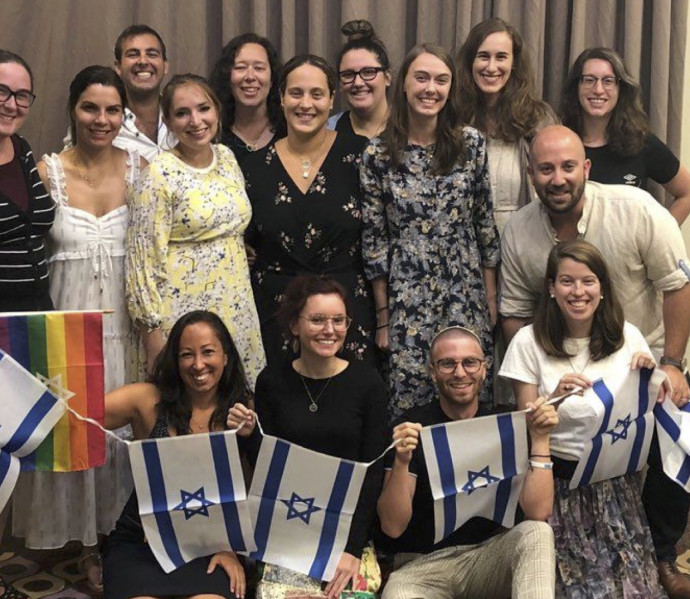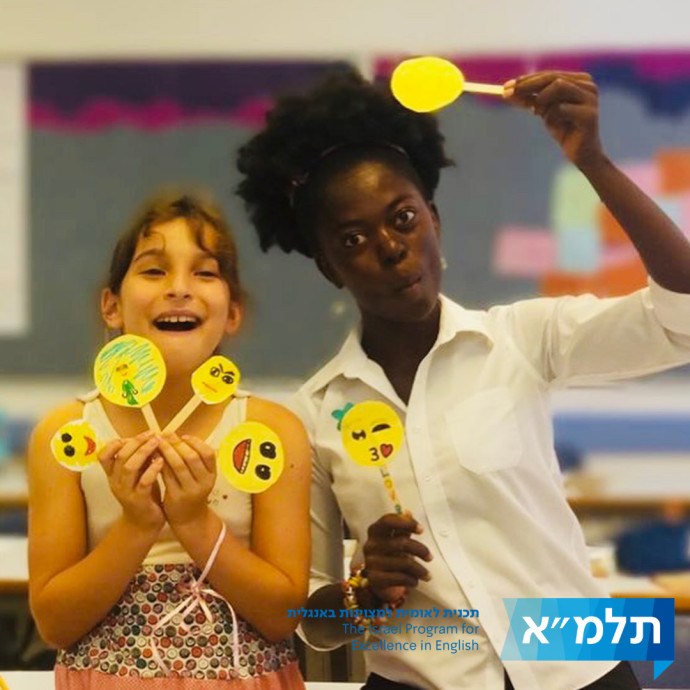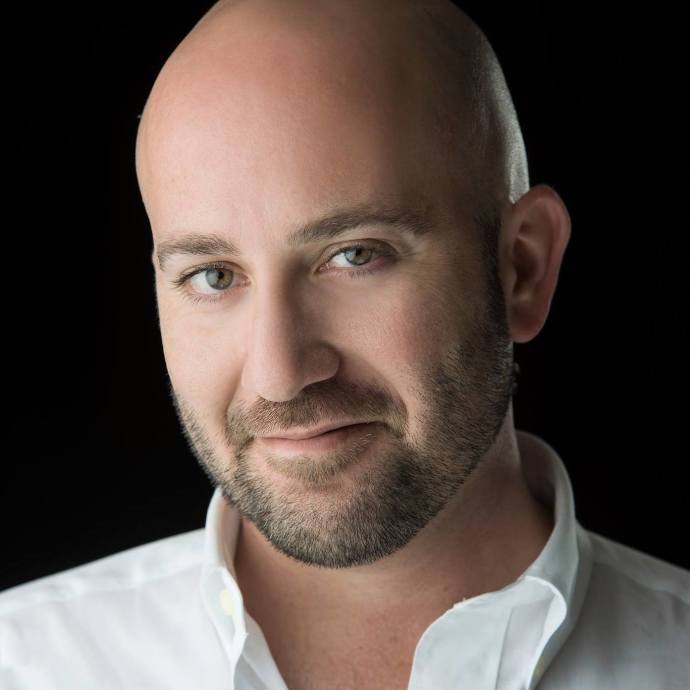“Great things have small beginnings” was the motto of Sir Francis Drake, the 16th-century English explorer and sailor. Much the same can be said about TALMA, the Israel Program for Excellence in English, which from humble beginnings, has led a revolution in English proficiency for students in Israel’s periphery, brought thousands of gifted English-language educators from the Diaspora to teach in Israel and inspired 60% of those teachers to make aliyah.
The impetus for TALMA came about due to a seemingly minor decision taken by the Israeli Ministry of Education in 2013 that introduced public summer school classes for elementary school children. The Charles and Lynn Schusterman Family Foundation and the Steinhardt Family Foundation, recognizing the critical role that English skills play in the job market while re-connection young professionals to the State of Israel, partnered with the Ministry of Education to bring non-Israeli English teachers to Israel to teach English in elementary schools in underserved communities during the extra month of summer classes. Since TALMA’s establishment, a growing list of Jewish federations and family foundations have joined the ranks of Schusterman and Steinhardt to lead in the mission of promoting educational opportunities in the State of Israel.
Alon Futterman, a longtime social entrepreneur in Israel who has been active in education, government and non-profit organizations, is the founder and CEO of TALMA. He explains that at that time, Israel’s State Comptroller had reported that the country had a shortage of 650 certified English teachers. “A roundtable was formed,” he says, “to think together about creative solutions to access English learning in underserved communities so that children would have the opportunity to study this core subject regardless of their affiliation, regardless of their family’s financial background, and regardless of where they were in the geographic regions of this country.”

TALMA launched a pilot program in the summer of 2014, bringing talented English-language teachers to Nazareth Illit and Migdal HaEmek. Since then, the TALMA program has blossomed from a small summer program into a large-scale operation in thirty different cities and towns in Israel, from the Golan Heights to Eilat. TALMA now operates a wide variety of additional English instructional programs, including full-year programs in the periphery, English-language training for members of the Haredi sector in the workforce, a program for the Bedouin community in Rahat, English classes for Ethiopians, and others.
“We see ourselves as a movement – not just an organization,” declares Futterman, who explains that the TALMA program, as a public government program, is more than a light, ‘feel-good’ type of program. We have to make sure that since there’s public money that’s invested, there are results – that we can see children accomplishing the pedagogical goals that we have set, such as raising the levels of confidence when speaking English.” TALMA English classes are provided for students in classes 4-12, depending on each municipality's needs.
Teachers who come to Israel for the one-month summer program are partnered with an Israeli teacher and teach English in a team setting with their Israeli counterparts. Futterman says that the TALMA summer experience provides three different experiences for its participants. For the students, the program creates an opportunity to increase their proficiency in English. TALMA provides Israeli teachers with a co-teaching experience, which they do not have throughout the year. Finally, TALMA gives non-Israeli teachers the ability to develop their professional skills in a new and different environment, which will serve them well throughout their careers.

“Teachers come for one month and teach English in areas where there’s a lack of certified teachers throughout the entire school year,” Futterman explains. Afterward, we offer them the opportunity to stay on for an entire school year.” TALMA's full-year community program consists of non-Israeli teachers teaching English and native Israeli educators providing instruction in other subjects.
Futterman expands on the significance of the full-year program. “The non-Israelis are teaching English, and they stay in Israel on a special visa that the country gives them. Israel provides a B1 visa for Jews considering aliyah, so they are not coming as tourists. They can work here legally, and the Israelis teach the other subjects.”
The first full-year program began in Mizpeh Ramon and served four different towns in the area. TALMA brought together 20 Israeli teachers and 20 non-Israeli educators. Futterman says that the one-year program is a game-changer. “First of all, it’s not just a program for English speakers alone,” he explains. “The concept here is a bit broader. It’s non-Israelis and Israelis coming together, forming their own modern Jewish community where their common ground is that they are all teachers. Instead of just working at the schools, they become inseparable from the local community. They are running classes at the young adult center. It’s not just about being the English teacher inside the class. It’s about being a member of the town that we’re actually living in.”
According to Futterman, bringing certified English teachers to Israel to live and work connects them to the country because it allows them to see Israel as far more than a tourist destination. It turns it into a place where they can do something meaningful. The byproduct of the program, says Futterman, has been aliyah. “We never announced aliyah as one of our goals,” he notes. It just happened that 60% of the participants in the full-year program decided to move here. That allowed us to continue to develop additional programs because it wasn’t just coming and teaching English in underserved communities for a summer or for a full-year program. It is about creating a cohort of certified professionals eager to work in underserved communities.”
Futterman adds that the one-year program not only leads to aliyah for many of the non-Israeli teachers but also causes many young Israeli teachers to move to the periphery. “For example, we have a community in Eilat of thirty teachers, of which 15 are non-Israeli, and 15 are Israeli,” says Futterman, who adds that the city has a perennial shortage of qualified teachers in all subjects. “Creating a framework that will allow a young Israeli teacher, regardless of the subject they are teaching, to move to Eilat and be a teacher in a classroom there is a game-changer on a city level. You’re in a place where both young professional Israelis and professional non-Israelis can equally be a part of it and share the same commitment to the same set of values.”
TALMA’s English educators range in age between 25 and 35, and the TALMA program accepts both Jewish and non-Jewish teachers to its program, though the non-Jewish educators are not eligible for the one-year program, but for the summer program alone. One precondition for application, Futterman explains, is that teachers must have been to Israel previously. “If you’re looking for a program that will deal with the Israeli-Palestinian conflict or take you to the Western Wall,” says Futterman, “that’s not us. But if you’ve been here in the past as a tourist and you’re looking for professional development experience or joining an international community of teachers that comes together in Israel, that’s where we start our conversation.”
Futterman notes that TALMA does not target teachers with specific Jewish affiliations. “We are not targeting the affiliated alone. We are actually reaching the people who are not affiliated. We don’t only recruit from Jewish day schools. We have many connections within non-Jewish organizations such as Teach for All and Teach for America. When we are able to access those organizations and say, ‘Here’s an opportunity to come and do something relevant to you, regardless of how you practice Judaism, if at all’ it allows us to have a different kind of starting point, which is very important to organizations that support TALMA.”
Futterman’s remarks are largely borne out through a group zoom interview conducted with three TALMA educators who are currently teaching in the full-year program in Eilat. Jaime Lapper, an English teacher from Simi Valley, CA, participated in the summer program in 2018 in Mizpeh Ramon, and in the summer of 2021, taught in Ashkelon. Lapper says that she feels a deeper connection with her Israeli students. “They are actually interested in me and my life and who I am as a person,” she says. “The closeness that I feel with the students is completely different.”

Lapper adds that she had no connection to Israel and little knowledge of Judaism before joining TALMA. “I am from a Jewish family, but I am the first person from my family to step foot in Israel.” Though she participated in Birthright, Lapper says, “this program gave me another chance to experience the real Israel – working in a classroom, buying groceries, meeting people, and not just touring.”
Lindsey Sheldon taught English in Richmond, VA, and joined the TALMA summer program in Nazareth Illit. She returned to Israel the following summer and taught in Mizpeh Ramon. She is now teaching in her second full year in Eilat, recently became engaged to Asaf, and will be making aliyah. “Once the students start feeling your energy and start opening up,” she says, “the language barrier disappears because you are all in this together.” Sheldon, who grew up in a Reform Jewish congregation in northern Virginia, says that the program has shaped her Jewish identity as an adult.
Jonny Levin, originally from Fairfield, CA, taught in Spain before joining the summer program in the Ben Shemen village in the summer of 2019. He, too, is in his second full year in Eilat and says that his Jewish observance gradually disappeared during the four years he lived in Spain. “I was aware there was a void in the spiritual component in my life,” he says. “Coming here made me confront things I hadn’t had confronted before. It’s nice having a shared cultural connection with people I’d never met before.”
“TALMA is not just growing,” says Alon Futterman. It’s growing at a pace that allows us to say to the world in general and the Jewish world specifically, ‘Come and join this movement.’ Try out the summer program and then try the full-year program. We have more opportunities today than we’ve had in the past. As the late Charles Shusterman said, ‘we make it possible, and you make it happen’.” Alon is inviting likeminded partners to join TALMA’s mission of creating education equality across Israel and paving new ways for young professionals to connect with the country.
This article was written in cooperation with TALMA, the Israel Program for Excellence in English.
